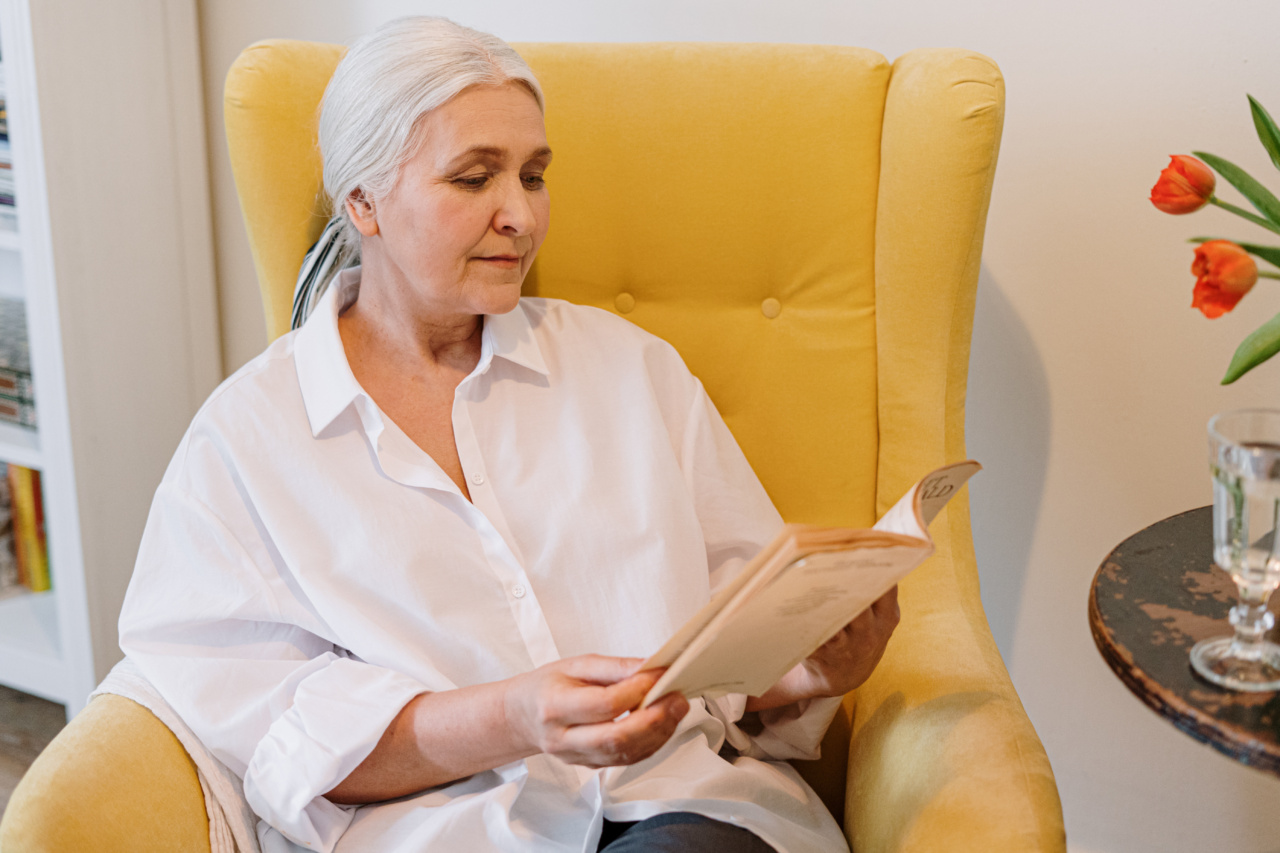Our hair is a reflection of our overall health and well-being. It can provide valuable insights into our nutrition, hormonal balance, and even indicate certain underlying health conditions.
By paying attention to the condition, texture, and appearance of our hair, we can decode the messages our strands are sending and take the necessary steps to improve our overall health. In this article, we will explore the various ways in which our hair speaks to us about our internal well-being.
Hair Loss and Thinning
One of the most common issues people face with their hair is hair loss or thinning. This can be attributed to several factors, including genetics, hormonal imbalances, poor nutrition, stress, and certain medical conditions.
Excessive hair shedding or noticeable thinning may indicate a deficiency in essential nutrients, such as iron, zinc, or protein.
Furthermore, hormonal imbalances, such as an underactive or overactive thyroid, can also contribute to hair loss. In women, polycystic ovary syndrome (PCOS) can lead to both thinning hair and excessive hair growth on other parts of the body.
If you notice significant hair loss or thinning, it is important to consult with a healthcare professional to identify the underlying cause and develop a targeted treatment plan.
Dry and Brittle Hair
Do you often find your hair feeling dry, brittle, and prone to breakage? This could indicate underlying health issues or lifestyle factors that need attention.
Dry and brittle hair can be caused by frequent use of harsh hair products, excessive heat styling, overexposure to the sun, or chlorine in swimming pools.
However, if you maintain a healthy hair care routine and still experience dry and brittle hair, it may be a sign of an underlying health issue.
Conditions such as hypothyroidism, nutritional deficiencies, or even dehydration can affect the moisture content of your hair. Ensuring a well-balanced diet, staying hydrated, and using gentle hair care products can help improve the health and appearance of your hair.
Oily Scalp and Greasy Hair
If you find your hair getting greasy just a day or two after washing it, you may have an overly oily scalp.
While genetics can play a role in the natural oiliness of your scalp, excessive oil production can also be linked to hormonal imbalances, stress, or an unhealthy diet.
Additionally, using harsh hair products, overwashing your hair, or not rinsing out products thoroughly can lead to an overproduction of oil in your scalp.
It is important to strike a balance when it comes to hair care – opting for gentle, sulfate-free shampoos and avoiding excessive washing can help regulate your scalp’s oil production.
Dandruff and Itchy Scalp
Dealing with dandruff and an itchy scalp can be uncomfortable and embarrassing. Dandruff is often caused by the overgrowth of a yeast-like fungus called Malassezia on the scalp.
This overgrowth can be triggered by a range of factors, including stress, hormonal imbalances, poor hygiene, or a weakened immune system.
Dry skin conditions, such as eczema or psoriasis, can also contribute to dandruff and an itchy scalp. Frequent use of harsh shampoos, hot showers, and excessive heat styling can further worsen these conditions.
Using gentle, anti-dandruff shampoos containing ingredients like zinc pyrithione or ketoconazole, along with maintaining good scalp hygiene, can help alleviate dandruff and reduce itchiness.
Graying Hair
As we age, our hair naturally begins to turn gray. However, premature graying (before the age of 30) or rapid graying can indicate certain health conditions.
Research suggests that oxidative stress caused by an imbalance of free radicals and antioxidants in the body may contribute to premature graying.
Additionally, certain medical conditions like vitamin B12 deficiency, autoimmune disorders, and thyroid dysfunction have been associated with premature graying.
Although there is no proven way to reverse gray hair, adopting a healthy lifestyle, managing stress, and treating underlying conditions can potentially slow down the graying process.
Hair Texture and Protein Deficiency
Protein is a crucial nutrient for the health and strength of our hair. If your hair feels weak, lacks luster, or breaks easily, it may indicate a protein deficiency. Protein is responsible for building and repairing tissues, including the hair shaft.
Without an adequate protein intake, your hair can become weak, brittle, and more prone to damage.
Ensuring a diet rich in high-quality proteins, such as lean meats, fish, eggs, and legumes, can help improve the texture and strength of your hair.
In severe cases of protein deficiency, a healthcare professional may recommend supplements or additional interventions to restore optimal protein levels.
Alopecia Areata
Alopecia areata is an autoimmune condition that leads to sudden hair loss, typically in small patches. This condition occurs when the immune system mistakenly attacks the hair follicles, causing them to weaken and fall out.
It is not yet fully understood why some individuals develop alopecia areata, but it is believed to be a combination of genetic and environmental factors.
Stress, certain viral or bacterial infections, and hormonal imbalances may trigger or exacerbate episodes of alopecia areata.
While there is currently no cure for this condition, various treatment approaches, including medication, topical solutions, and lifestyle modifications, can help manage and minimize hair loss.
Scalp Conditions and Inflammation
Inflammation of the scalp can manifest in various ways, including redness, flakiness, and itchiness. One common scalp condition associated with inflammation is scalp psoriasis.
Psoriasis is a chronic autoimmune disorder that affects the skin cells, causing them to build up rapidly on the surface.
Scalp psoriasis can cause silver-white scales, dryness, and intense itching. Other conditions like seborrheic dermatitis (dandruff) and contact dermatitis can also lead to scalp inflammation and discomfort.
Using gentle shampoos, avoiding harsh hair care products, and incorporating soothing ingredients like tea tree oil or aloe vera can provide relief for a sensitive scalp.
Hormonal Imbalances and Hair Issues
Hormonal imbalances, particularly in women, can have a significant impact on the health and appearance of the hair.
Fluctuations in hormone levels, such as those experienced during pregnancy, menopause, or conditions like polycystic ovary syndrome (PCOS), can lead to hair thinning, excessive shedding, or changes in hair texture.
In cases of hormonal imbalances, it is crucial to address the underlying cause and seek appropriate medical treatment.
Hormone replacement therapies, lifestyle adjustments, and targeted hair care approaches can help restore hormonal balance and promote healthier hair growth.
Conclusion
Our hair can serve as an important indicator of our overall health and well-being.
Paying attention to the changes in our hair’s condition, texture, and appearance can provide valuable insights into underlying health issues or lifestyle factors that need attention.
By adopting a holistic approach to hair care, including a balanced diet, gentle hair care routines, and addressing any underlying health conditions, we can strive to improve the health and appearance of our hair.
Remember, a healthy body often translates to healthy and vibrant hair.






























